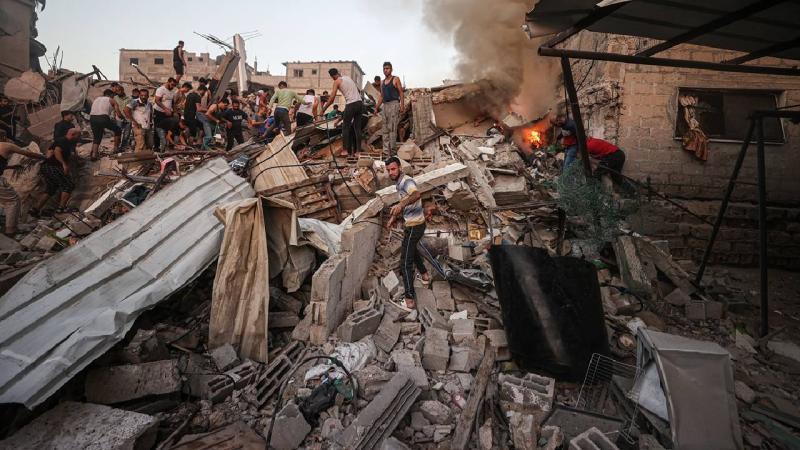In my article on Sunday, I said that the Gaza war had triggered the “day after” debate and that some experts and states were hopeful that after the war a Palestinian state would be established close to the 1967 borders, controlling a small part of Jerusalem, but that I did not think this was very likely because Israel’s plan was completely different and no one was willing to dissuade it from its plan.
I had tried to emphasize that with the collapse of the Hamas regime, it was only a matter of time and days before Gaza would be “cleansed” of Palestinians and Gaza would flow towards Sinai, despite Egyptian and even American objections. I concluded my article with the hope that the unpredictable possibilities of diplomacy and the fluctuations in the world balance of power would not confirm my pessimistic outlook.
read more:
- The Federation Plan is not a political decision but a project of the Turkish General Staff!
- Propaganda: poison and counter-poison
However, after reading Carnegie’s Zaha Hassan’s report of December 22nd, I became even more pessimistic about the future. I began to think that a resolution of the Palestinian conflict within the framework of the UN parameters, within the 1967 understanding, was now increasingly unlikely, because it seemed neither possible to reconcile different expectations, let alone Israel’s plans, nor to make Gaza habitable again in the near future.
Hassan wrote that as of last week, Israel had dropped at least 29,000 bombs on the Gaza Strip, with an average intensity close to that of two atomic bombs, that gases from the explosions and building debris had rendered the area uninhabitable, that the white phosphorus used would have long-lasting effects, that water and sewage systems had been destroyed along with the destroyed tunnels, and that agriculture, the region’s main source of livelihood, would be impossible for a long time.
He also said that Gaza’s health and education system had been severely damaged, that at least 50 health units had been targeted, 600 health workers, including doctors, had been killed, that there were no structures left to provide long-term care for more than 50,000 wounded, that 85 percent of Gaza’s population had been displaced, that 56 percent of the population was starving according to the UN World Food Program, and that Gazans were forced to rely on 2 liters of water a day when a minimum of 15 liters was required.
Worse still, he said, the situation would not change even after the Israeli intervention ceased, and would only worsen after UNRWA, which had been providing aid to Palestinians for decades, was dismantled at Israel’s request. Hassan’s picture, based on data from independent sources, was not promising for the present or the future. Moreover, the political positions of the parties he outlined were far from compromise.
Unfortunately, his answer to the question of whether the UN, or more precisely the EU and the US, would make efforts to change this picture was not very different from mine. He, too, took the position that the EU and the US would not make any effort to deter Israel from its ambitions. Moreover, the Palestinian Prime Minister Mohammad Ishtiyya, with whom he spoke and whose views he included in his article, put forward unacceptable conditions for taking over the administration of Gaza.
Hassan’s suggestion is to take steps to increase the legitimacy of the Palestinian Authority, to do something for Palestine today, to think, to plan its future without waiting for the next day, as Ishtiyya said. If you ask if it can be done, my answer would be a pessimistic no, I would say that from now on we should think more about the Palestinians than Palestine, and we should find realistic and sustainable solutions for them.
I recommend that those who have the time and the interest in the subject, especially the relevant and competent departments of the state, read Zaha Hassan’s article if they have not already done so. It seems that it will not be easy to plan for the aftermath of the disaster in Gaza, to keep Gazans in Gaza, to turn them into citizens of a possible Palestinian state and to ensure that they live a modest but normal life. And it is clear that Israel will not easily leave the places it has entered…

Source of the article: Karar





